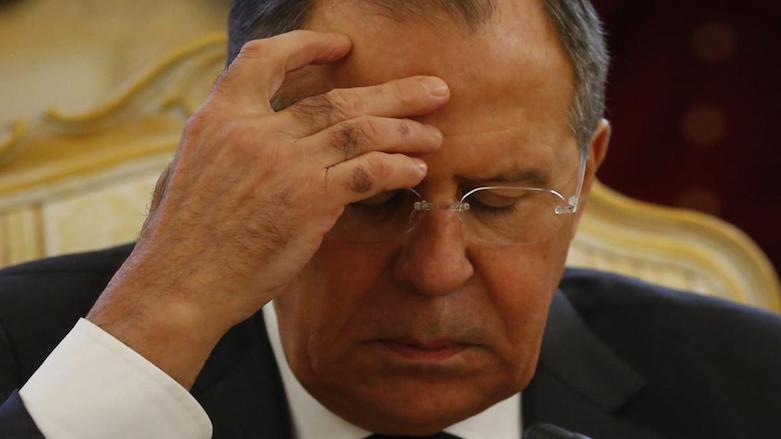Tillerson meeting with Lavrov moved up to address Syrian crisis

WASHINGTON DC, United States (Kurdistan24) – US Secretary of State Rex Tillerson will meet Russian Foreign Minister Sergei Lavrov in Washington on Wednesday instead of a meeting originally scheduled for later this week.
The two powers will attend the 10th Arctic Council Ministerial Meeting in Fairbanks, Alaska, which brings together eight Arctic states, including the US and Russia.
On Monday, however, the State Department announced the date of the meeting had been advanced, and the venue changed.
A State Department official told Kurdistan24 the meeting in Washington would replace the “already scheduled” meeting in Alaska.
It is quite unusual for the US to change the date and place of such a meeting, if no scheduling conflict has arisen that requires such a change, a former State Department official observed to Kurdistan24.
Tillerson and Lavrov both remain slated to attend the Alaska conference, so the change suggests some “urgency,” this former official said. And if it is urgent, “I assume it’s about Syria,” he stated.
The Trump administration’s first response to Moscow’s proposal for “de-escalation zones” in Syria now looks to have been somewhat naive, and the administration seems to be in the process of correcting its original misstep.
Last Tuesday, when Russian President Vladimir Putin called President Donald Trump and presented the idea, Trump readily endorsed it. A subsequent White House statement described their conversation as “very good.”
The next day, Turkish President Recep Tayyip Erdogan visited Moscow and embraced the Russian proposal, proclaiming Ankara’s ties with Moscow were entering a “new phase” and were now “beyond normalization.”
The Russian proposal would essentially turn over Syria’s Idlib Province to Turkish control, allowing Ankara to block any attempt by the Kurdish People’s Protection Units (YPG) to link their area to the Mediterranean Sea.
As a corridor to the Mediterranean would be a considerable strategic gain for the YPG, it is little surprise Erdogan so warmly embraced Putin’s plan, while the YPG has denounced it.
On Thursday, following Erdogan’s meeting with Putin, Moscow introduced its proposal at the Syrian peace conference in Astana.
The Syrian opposition rejected it, and Damascus was silent, but the proposal was approved by the external powers who are to be its guarantors: Russia, Turkey, and Iran.
Additionally, on Friday, Russia announced the agreement would take effect at midnight local time.
Russia also announced that aircraft of the US-led coalition fighting the Islamic State (IS) in Syria would be barred from flying in the de-escalation zones.
That caught Washington unawares. That morning, journalists pressed a Pentagon spokesman whether the US would abide by the restrictions.
The spokesman did not answer the question but referred them to the State Department, which, he said, had the lead on Syria. That is true, a legacy of the Obama administration, but incredulous reporters asked how the Pentagon could leave a matter directly affecting military operations to Foggy Bottom.
The Russian attempt to limit US flights has prompted the Trump administration to examine the entirety of Moscow’s proposal more carefully.
As Secretary of Defense James Mattis said on Monday, “There’s a lot of details to be worked out,” but “we’ll take a look at them” to see “if it can work.”
“All wars eventually come to an end,” Mattis explained, “and we’ve been looking for a long time how to bring this one to an end.”
David Satter, a former Moscow correspondent for the Financial Times and currently a senior fellow at the Hudson Institute, noted, “The Russians often say things that are deliberately misleading,” but, typically, “we jump at them” without fully considering the details.
The Soviets did the same thing, as Putin does now, Satter explained.
“The things that the Russians propose often don’t mean” the same, as they would, “if they were proposed by a law-abiding power,” he stated.
“One of the real principles of policy ought to be not to react to any Russian proposal immediately,” Satter said. We need to “thoroughly understand what it means” first.
Perhaps, the Trump administration now grasps that point better than it did last week?
Editing by Karzan Sulaivany
